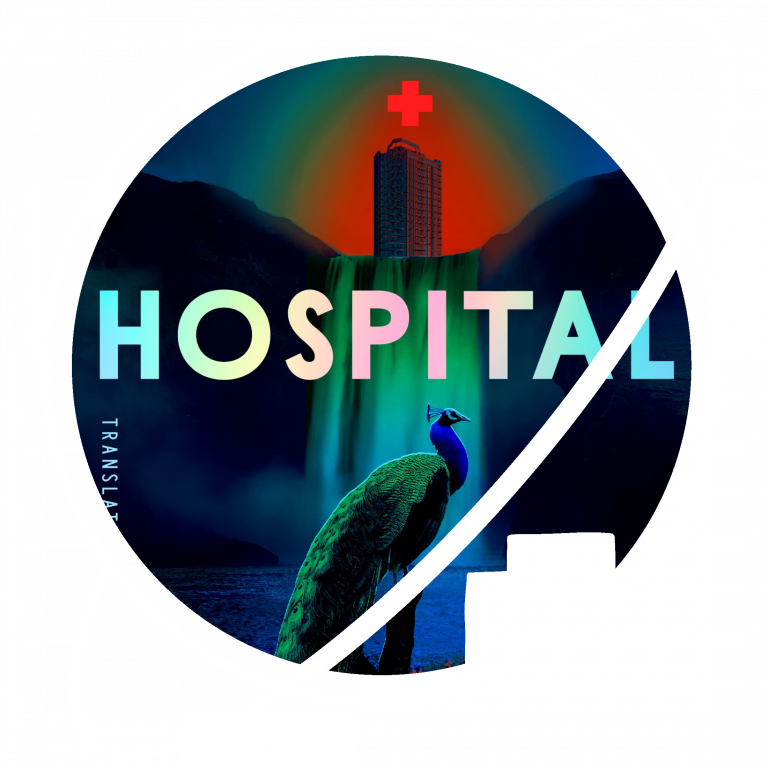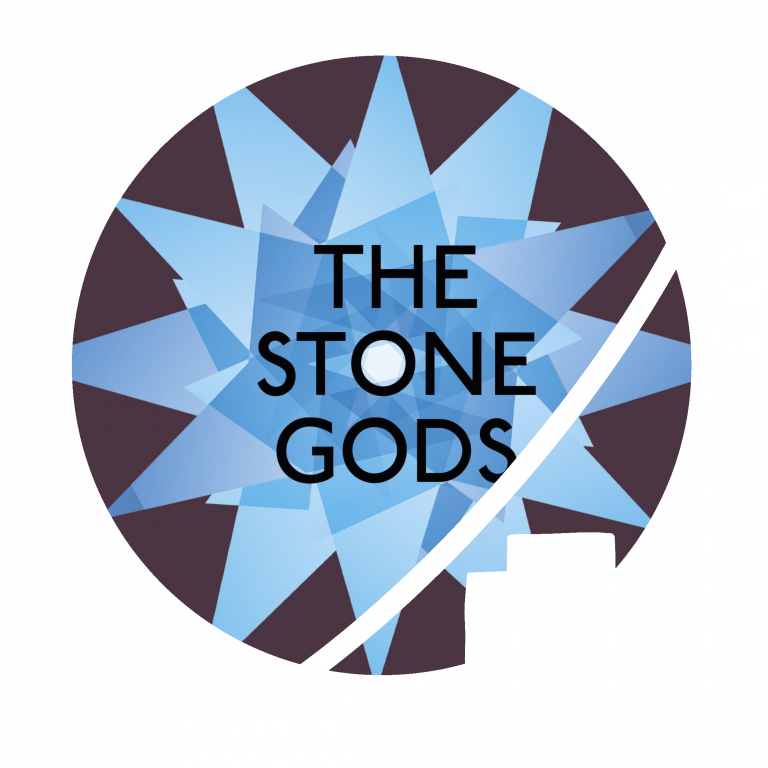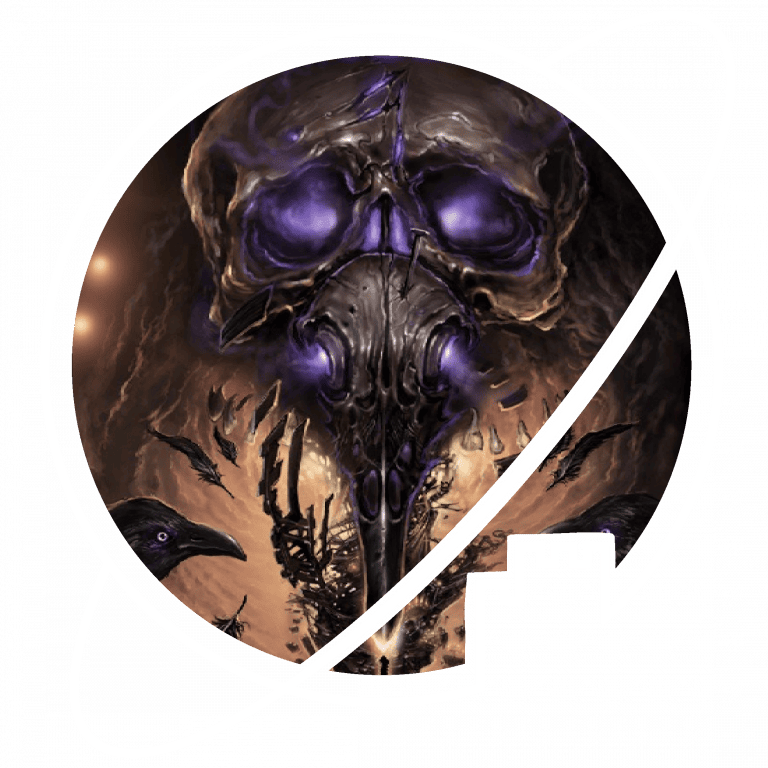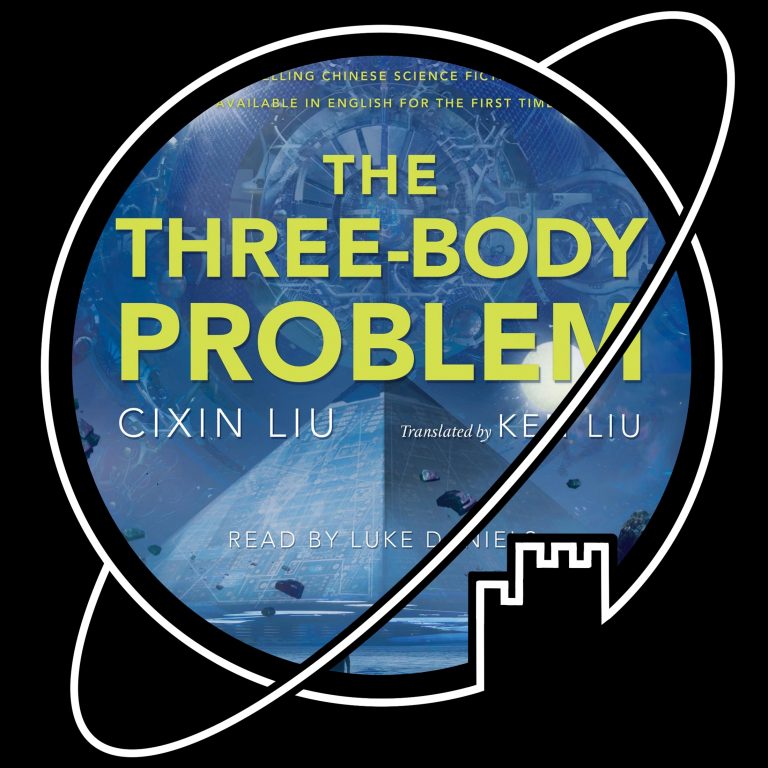- Book written by Han Song
- Translated by Michael Berry
- Published 1 March 2023
- Part 1 of the Hospital Trilogy
Yang Wei, an everyman part-time songwriter is whisked to a hospital while away from home in an unfamiliar city when drinking a glass of water gives him a terrible stomach ache. The moment he crosses the hospital’s threshold, he starts shedding agency, as he is dragged along and washed away in a current of ever more bizarre systems, bureaucracies, ideologies, and philosophies – pulled ever deeper in the Clinical-Academic-Industrial-Complex of the Age of Medicine.

Full disclosure: We received a free advance reader copy for Hospital.

Hospital is science fiction in the tradition of 1984 and Brave New World, an idea taken to its absurd extreme to show the reader where a society could be headed if no precautions are taken. With Hospital, Song deserves to be listed among the likes of Orwell and Huxley – though as may be expected, this literary bent means that Hospital is not exactly a light read.
Hospital is definitely worth the effort it takes to read, though. Like Yang Wei, the reader is dragged ever deeper into the clutches of a bizarre vision of a hospital that starts Kafkaesque and ends in utterly deranged cosmic vistas. Song masterfully takes the reader by the hand and pulls them away from sanity one step, one chapter at a time – every chapter I felt like what I was reading had to be the weirdest Hospital was going to get, but a few chapters on I would think back to that moment and feel that the book still made sense at that point.
The chapters are nicely bite-sized, so even though the book is not exactly light, it is not difficult to get through in small steps and twenty minute sittings. This is also the sneaky way Song makes you accept the bizzarities of each chapter quickly before moving on to the next surreal idea before you have time to recover – stretching your suspense of disbelieve ever further. I expected the rubber band to snap at any moment, but Song manages to make me accept things I never though I would.
It is a pity I am not more familiar with the particularities of modern Chinese society, though the translator’s afterword is invaluable in this respect. From my perspective, it is clear Hospital criticises a system that brainwashes naïve citizens, takes away their agency, takes away their ties to anything that is not the system, mothers them, makes decisions for them, paints a picture of the world with clear enemies, tells them only trust in the system can save them, and mercilessly assails them if they attempt to break free. Corruption, ambition, incompetence and abuse of power are rife. It is not difficult to understand why the Chinese Communist Party eventually bans most of Song’s writings.
Hospital and illness are perfect metaphors for this message, since even in the West, trust in doctors and modern medicine is a given, with only conspiracy theorists (given an impulse by the recent pandemic) questioning the system. This means it took me a while too before I definitely decided that Yang Wei was being taken by the nose.
Please don’t be put off by the first chapter – it is just a taste of what is to come, and by the time Hospital ever gets that surreal again, Song will have made you feel as comfortable with it as is humanly possible.
Overall, Hospital is one of the most intriguing books I have read in years, a unique reading experience that is as much about the reader and their reactions to it as it is about Yang Wei’s descent into madness. It is also a singular window on one of China’s masters of the genre that only opened because of Michael Berry’s brilliant translation. Hospital is nothing like the escapist tales we usually review here, but a definite recommendation and a top-tier thought-provoking conversation starter.

Going into this book, I didn’t really know what to expect except that it would be “kafkaesque”. IT certainly was that. From the moment Yang Wei enters the hospital, a sequence of events unfolds that is at times intriguing, funny, horrifying and sometimes just plain confusing. I should warn you: this book does deal with a couple of topics that some may consider unpleasant or even triggering: it features body horror and sexual scenes (even some rape). If these themes are something you don’t want to read, this book probably isn’t for you.
The book also discusses a lot of philosophical and political topics. To be honest, that’s not something I usually super enjoy in literature, as I suck at reading between the lines and interpreting. I also tend to read just before bed and just after waking up, which isn’t exactly when I’m at my most astute. This is definitely the kind of book that reminded me of reading literature in high school. The only problem is that I didn’t have spark notes to explain the themes of the story to me as I read.
While reading, I also really wished I was more familiar with Chinese culture and Buddhism. These two themes played a big part in the book, and I feel like I didn’t quite have the understanding to fully appreciate the references. It’s clearly written for a Chinese audience.
One of this book’s strongest points is how short and snappy the chapters are, and how they always end with another twist that compels you to read on. It wasn’t hard to keep reading at all, though the book did lose some momentum at around the 75% mark. It managed to pick back up near the end, but be warned: this is part of a series, so you don’t get a fantastic conclusion after reading 400 pages, which is a bit of a bummer.
I wouldn’t recommend this book to everyone, but here’s who I would recommend it to:
- People who may not take sci-fi seriously as a genre and need to see that it’s not all just laser blasters and lightsabers;
- People who want to read non-western sci-fi;
- People who like very philosophical books;
- People looking for a book for a book club. There’s definitely lots to discuss here.
Tagged:
- Adults, Book, Character-Driven, Dystopian, Grand Scope, Grimdark, Horror, Literary, Male Author, Non-Western Author, Original Setting, Pandemic, Philosophy, Politics, Religious Themes, Revolution, Science Fiction, Sexual Violence, Surrealistic, Thought-Provoking, Trilogy, Unreliable Narrator, Violence & Gore








